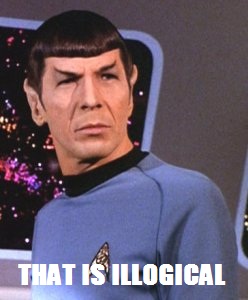Do Christians worship three Gods?
An evangelical author and blogger attempts a sort of primer on “the Trinity.”
An evangelical author and blogger attempts a sort of primer on “the Trinity.”
In this episode of the trinities podcast I answer some of your questions.
I’ve been working on my Trinities book today, and have been reading a lot of Origen (d. c. 253) lately. As is well known, most of his famous On First Principles (kindle, hardback) has been lost in the original Greek, but we have a “complete” copy of a Latin translation made by Rufinus of Aquileia (d. 410) in 398-9. Unfortunately, this translation was made in… Read More »Rufinus’s corruption of Origen’s On First Principles – Part 1
Theologian Roger Olson asks, How important is the doctrine of the Trinity? He seems to hold, with many others, that …the doctrine of the Trinity is crucial, essential, indispensable to a robust and healthy Christian view of God. But, The problem is, of course, that many, perhaps most, Christians have little or no understanding of the doctrine of the Trinity. And they couldn’t care less. Indeed.… Read More »Roger Olson asks: How important is the doctrine of the Trinity?
I’ve been reading I Told Me So (review) by Gregg Ten Elshof, a USC PhD who who teaches and chairs the Philosophy Department at my undergraduate alma mater. He’s been thinking about this topic for a long time (part 2) and so far, I really like the book. It is clearly written, insightful, and he trains his guns on self-deceptions by Christians in particular. Some of… Read More »You’re Foolin’ Yourself and You Don’t Believe It – Part 1
There’s a standard answer to the question posed at the end of the last post: the doctrine of the Trinity is the claim that the Christian God is three “persons” (Greek: hypostases, Latin: personae) in one “essence” or “being” (Greek: ousia, Latin: substantia). Case closed, right? How I wish! Again, ambiguities abound. Take “persons”. Ordinarily, a “person” is a kind of thing (individual entity). You’re… Read More »“the” Trinity doctrine – Part 2
“…earliest believers treated the risen/exalted Jesus as they did only because they felt required to do so by God.”
Thanks to Ed Feser for some interesting dialogue on the topic of mysteries in Christian theology. This post is just a bunch of miscellaneous responses to his thoughts posted last week, here and here. As he mentioned, Ed and I knew each other briefly as students at what is now called Claremont Graduate University. I remember having a conversation in his car once, maybe around… Read More »More on Mysteries
“In essentials, unity; in non-essentials liberty; in all things, love.” So far, so good. But, what does Scripture say is essential teaching about Christ and about God?
Dr. Mike Licona argues that the real, historical man Jesus considered himself to be God.
Why it is just as obviously a confusion to run together Jesus and God as it is to run together Jesus and the Father.
More lessons on how not to do apologetics, from a Master.
“Then Jesus, filled with the power of the Spirit, returned to Galilee… He began to teach in their synagogues and was praised by everyone.”
 Minister Jeremy Myers asks: “Did Jesus Learn?“ (HT: James McGrath on Facebook)
Minister Jeremy Myers asks: “Did Jesus Learn?“ (HT: James McGrath on Facebook)
Great post. One favorite bit:
At one point in our discussion, I said, “Well, it seems logical that if Jesus was fully human, then He had to learn.” Their response was, “I don’t use logic. I just use Scripture.” I just about broke out laughing. It seemed pretty obvious to me that logic was not being used. Ha! One guy also kept saying, “I don’t speculate about Scripture. I just believe what it says.”
Oh, “logic” (really, human reasoning ability) was being used… just not well! 😉
In any case, he answers the question of the post affirmatively.
I agree with Jeremy that according to the New Testament, Jesus learned. Any theory about Jesus must incorporate this fact. And while he was doing that, there were truths he did not know.
But that gives rise to this argument:
I would say, in evaluation of this argument:Read More »Jeremy Myers asks: “Did Jesus Learn?”
This brings the total of R’s to 6. Wish I could say there weren’t more coming! We’ve looked so far at two ways Christians may respond to apparently contradictory doctrines: Redirection and Restraint. We now move on to a third strategy: Resolution. In brief, the Resolver holds that the apparent contradiction can be banished, made to disappear. She doesn’t change the subject (as the Redirector),… Read More »Dealing with Apparent Contradictions: Part 7 – Resolution by Rational Reinterpretation
Here are some brief comments on a book review of Nicholas Lash‘s A Reading of the Apostles’ Creed. (Full ref: Robert P. Imbelli, “Believing Three Ways in One God: A Reading of the Apostles’ Creed”, Commonweal, Jan 28, 1994, 121:2, p. 24. – accessed online through Infotrac.) (my emphases added) Lash rightly insists upon God’s incomprehensible nature and advocates a welcome modesty of speech in… Read More »Lash: “modes” or “ways”, not “persons”
Does Jude 4 somehow refute what unitarian Christians say about John 17:1-3.
Some reasons why we should think that the New Testament writers don’t believe that Jesus literally existed before his time in the womb.
John Duns Scotus (d. 1308), nicknamed by tradition “the Subtle Doctor,” was one of the most important medieval Christian philosophers, and was notorious for the difficulty of his thought. In this episode, we hear a specialist in medieval philosophy give a conference presentation on Scotus’s views on identity (sameness) and distinction (difference). Nowadays most philosophers and logicians recognize qualitative sameness (aka similarity), which comes in degrees,… Read More »podcast 65 – Dr. Joshua Blander on John Duns Scotus on Identity and Distinction